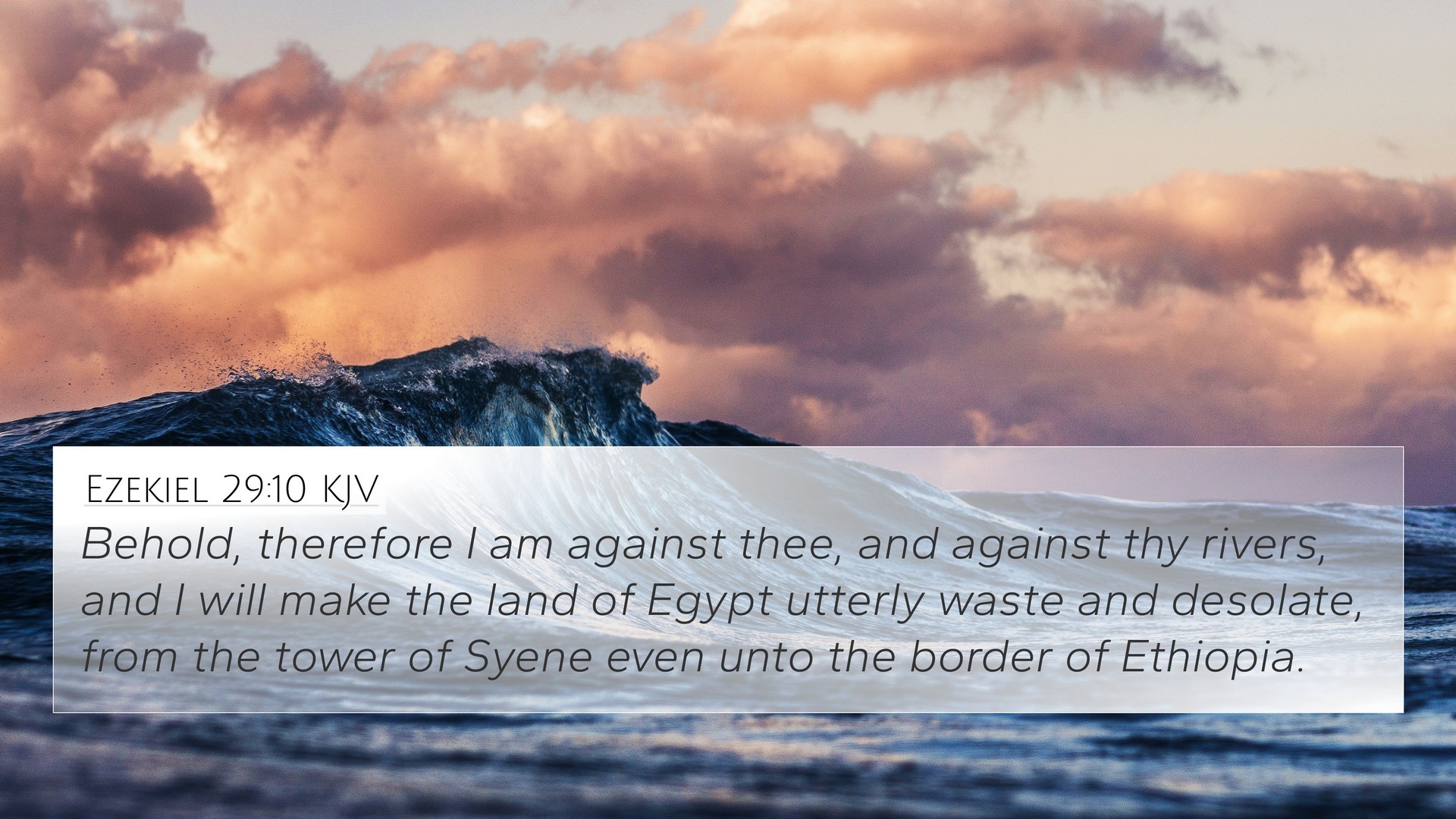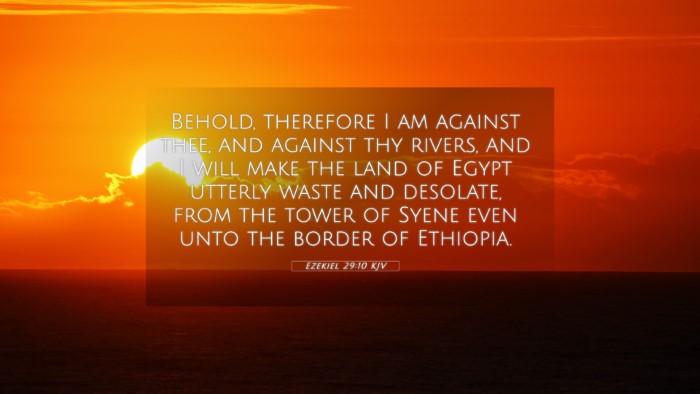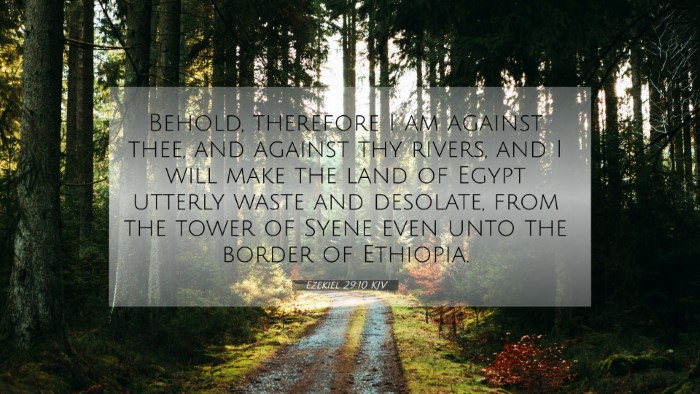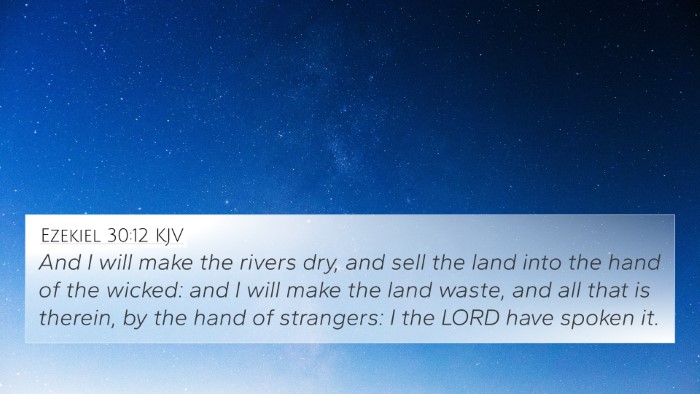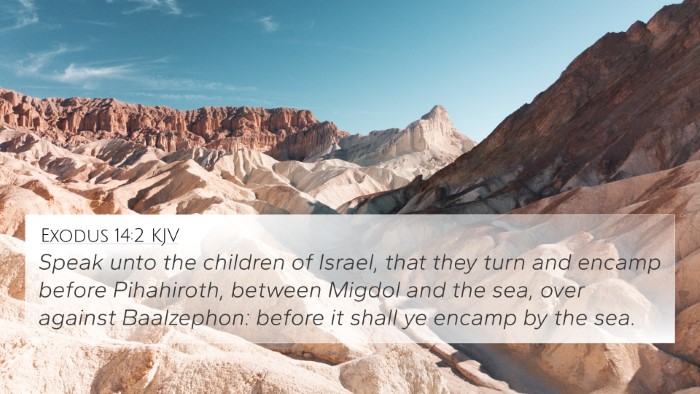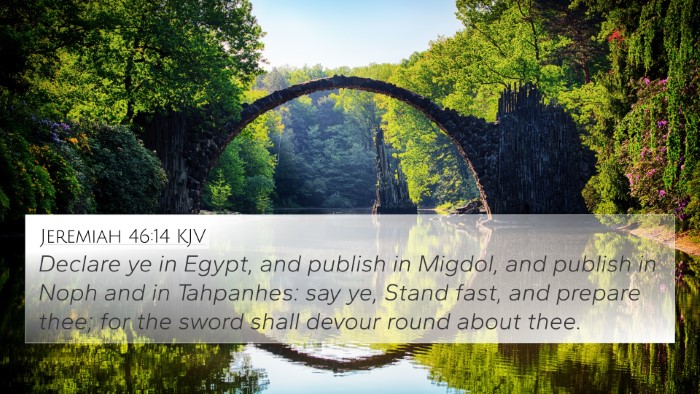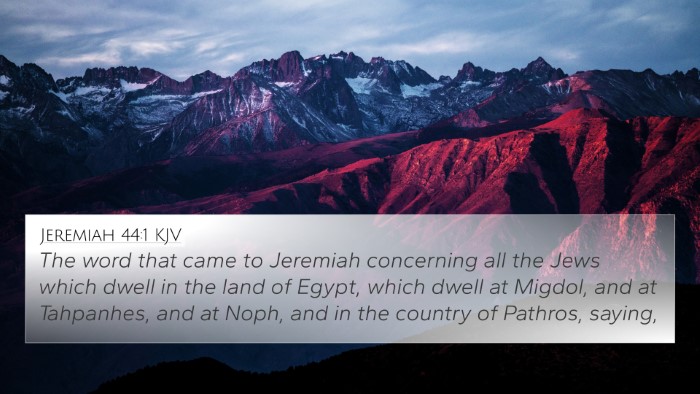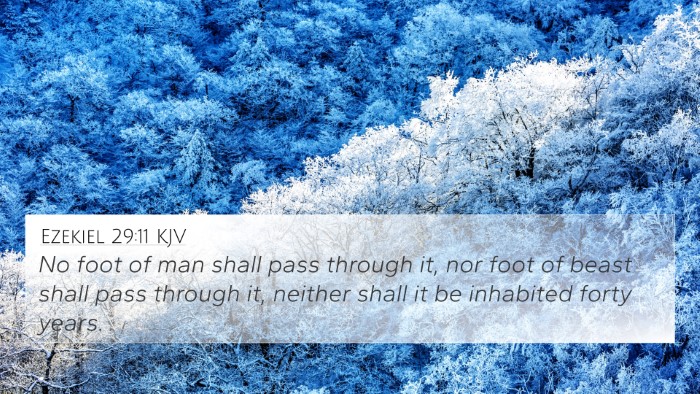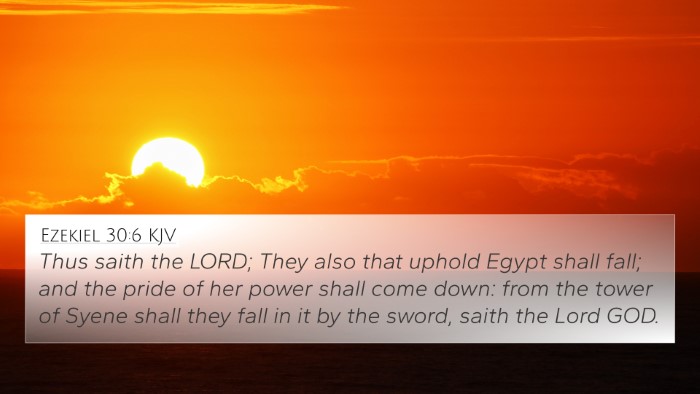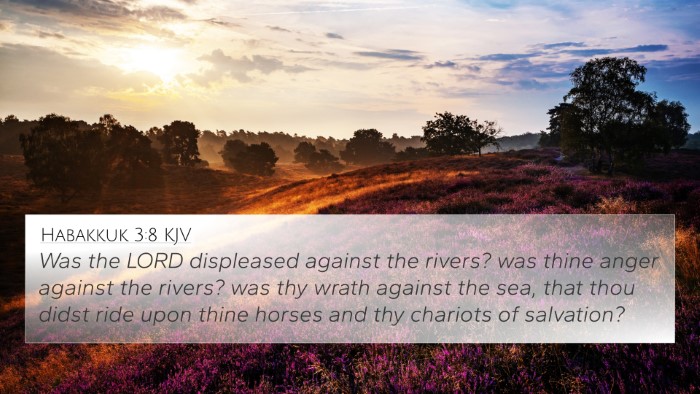Ezekiel 29:10 - Summary and Interpretation
Ezekiel 29:10 states: "Therefore, behold, I am against you and against your rivers, and I will make the land of Egypt utterly waste and desolate, from the tower of Syene even unto the border of Ethiopia."
Overview of Ezekiel 29:10
This verse is part of a prophetic denunciation of Egypt, where God expresses imminent judgement against the nation. The declaration marks a significant moment in Ezekiel's ministry, highlighting God's sovereign authority over nations and the consequences of their actions.
Interpretative Insights
- Public Domain Commentaries:
- Matthew Henry: Henry reflects on the judgement that befalls Egypt due to its pride and reliance on its river for security. He emphasizes God's ultimate control over nature and the futility of man's securities against divine rebuke.
- Albert Barnes: Barnes provides a detailed commentary linking Egypt’s downfall to its idolatry and its failure to recognize God. He interprets the rivers mentioned as symbols of Egypt's resources that God intends to dry up.
- Adam Clarke: Clarke contextualizes the historical significance of Egypt in Israel's story. He conveys the idea that Egypt’s devastation serves as a warning, emphasizing the theme of God’s justice and the transitory nature of human power.
Cross References
The meaning of Ezekiel 29:10 resonates with various other scriptures that underline similar themes. Below are 7-10 Bible Cross References for deeper understanding:
- Isaiah 19:5-6: Describes the drying up of the rivers of Egypt, emphasizing the devastation as a consequence of their sin.
- Jeremiah 46:25: Proclaims a judgment against Egypt, highlighting God's power over nations.
- Ezekiel 30:4: Similar to Ezekiel 29, this verse emphasizes the coming destruction of Egypt, underscoring the theme of divine judgment.
- Revelation 11:8: The symbolic use of Egypt to represent spiritual death connects with the condemnation in Ezekiel.
- Psalm 78:43-44: Reminds of God's acts against Egypt, which is a shared narrative throughout the Bible.
- Romans 9:17: Paul refers to Pharaoh's experience to demonstrate God’s sovereignty, reflecting similar themes found in Ezekiel.
- Matthew 2:15: The reference to Egypt in Jesus’ escape resonates with the historical context and theme of refuge versus destruction.
- Habakkuk 3:7: Mention of Cush and Egypt as mentioned relates significantly to the upheaval God brings upon nations in judgement.
- Acts 7:36: Refers back to Moses and the signs God performed in Egypt, linking back to the narrative of Israel’s deliverance.
Thematic Connections
This verse exemplifies a broader inter-biblical dialogue about divine judgment, the role of national pride, and the ultimate sovereignty of God. The connections between these scriptures reveal a comprehensive view of God’s interactions with nations throughout history.
Tools for Bible Cross-Referencing
Studying Ezekiel 29:10 can be enhanced through various methods. Below are suggested tools for Bible cross-referencing:
- Utilize a Bible concordance to find related verses.
- Employ a Bible cross-reference guide that includes systematic issues regarding divine judgement.
- Engage in cross-reference Bible study that encourages comparisons and thematic connections.
- Look for detailed cross-reference materials that encompass both Old Testament and New Testament dialogues.
Conclusion
Ezekiel 29:10 serves as a powerful reminder of God's judgement on nations, the importance of examining our own reliance on earthly powers, and the call to recognize divine sovereignty. By leveraging tools for cross-referencing and understanding thematic connections within scripture, believers can deepen their interpretations and applications of Bible verses like this one.
Further Study
Encourage study that includes identifying connections between the Old and New Testaments, comparative studies of Pauline epistles, and linking the teachings of the Prophets with the Apostolic instruction to gain a holistic understanding of biblical themes.
